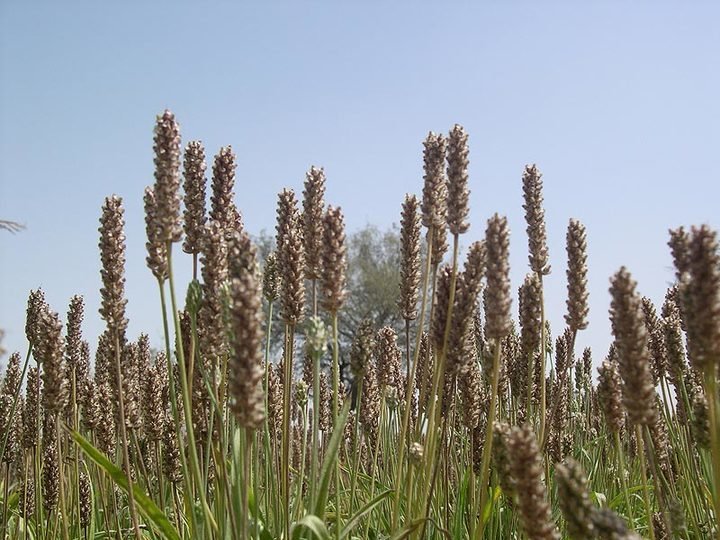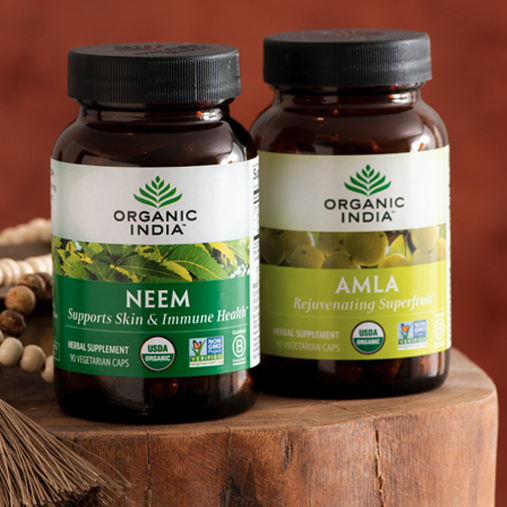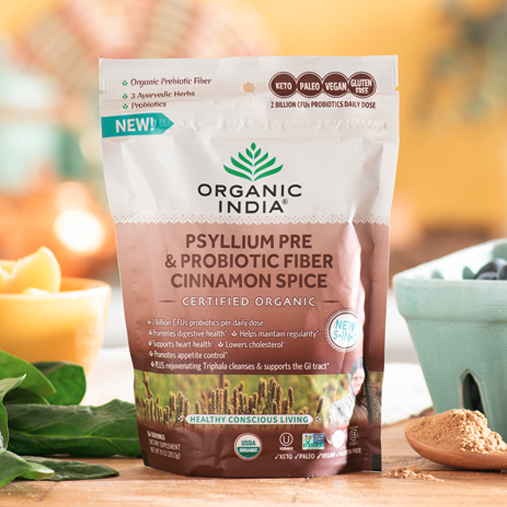While nutritionists have been calling us to the fiber bandwagon for decades, do we get enough? Low-carbohydrate keto diets eliminate most forms of sugar, but they also limit fiber-rich foods such as fruits, grains, and legumes. But it’s not just keto dieters who may need to increase their fiber intake; according to the University of California San Francisco Health Center, most adults require 25 to 30 grams of fiber a day, but Americans average only about 15 grams per day.
The benefits of a fiber-rich diet are almost too numerous to list, but an article in the academic journal Nutrients tells us, “Studies indicate that intake of dietary fiber is inversely related to obesity, type two diabetes, cancer, and cardiovascular disease.” This means that the higher the fiber intake, the lower the risk of common first-world diseases.
Studies indicate that the higher our fiber intake, the lower our risk of common first-world diseases.
Types of Fiber
In the broadest terms, there are two types of fiber:
- Soluble fiber, found in oat bran, legumes, seeds, nuts, psyllium (the husk from the seeds of the Plantago plant), and chia seeds. Soluble fibers become gel-like in the gut, slowing digestion and fat absorption. Research shows that soluble fibers contribute to reduced cholesterol levels, stabilizing blood sugar, and a healthy gut biome, or environment, for beneficial probiotic bacteria. This supports immune function, as the intestinal tract is home to 75 percent of the immune system.
- Insoluble fiber is found in plants and whole grains. This indigestible fiber has a healthy “sweeping” action in the gastrointestinal tract which keeps the internal plumbing clean and debris-free. Insoluble fiber reduces constipation and bowel blockages and also reduces the risk of diverticulitis, an inflammation of the gut caused by trapped food particles.
Benefits of the Keto Diet
Medical News Today reports that the low-carbohydrate ketogenic diet has several confirmed benefits — the body learns to burn fat as energy rather than carbs causing a reduction of stored body fat. This leads to weight loss.
Many modern diseases have been linked to chronic inflammation, from cancer, to diabetes, to heart disease. When we eliminate processed and refined carbohydrates and sugars by using a keto protocol, we reduce inflammation — especially chronic, long-term inflammation. According to the virtahealth.com website, “Nutritional ketosis has emerged as a potent modulator of inflammation. Unlike drugs that target just one aspect of the body’s immune response, keto-immuno-modulation (KIM) seems to work to evenly balance the anti-inflammatory effect in a safe, sustainable, and surprisingly potent way.”
Studies indicate that a ketogenic diet also has a “neuroprotective capacity,” meaning that it may offer protection from neuro-diseases such as Alzheimer’s as well as improve recovery from brain injuries.
Additional research shows that the keto diet may improve Polycystic Ovary Syndrome (PCOS) a frustrating disorder experienced by women of reproductive age. PCOS is associated with hormonal imbalances — a 24-day pilot study reported that “A low carbohydrate ketogenic diet led to significant improvement in weight, percent free testosterone, LH/FSH ratio, and fasting insulin in women with obesity and PCOS.”
The Ketogenic Diet: Halfway there
Experts emphasize the benefits of the “macros” of the ketogenic diet; an optimal combination of carbohydrates, fat, and protein. But it seems logical that the keto diet’s complete departure from processed foods laden with bulk sweeteners (high fructose corn syrup, processed sugars, fructose, etc.) and refined carbohydrates (mass-produced processed foods, fast foods, refined flours, etc.) contribute significantly to the known keto benefits such as reduced inflammation and healthy hormonal balance.
But for many, when carbs are eliminated, constipation becomes a concern. It takes time for the digestive tract to shift from processing carbohydrates to metabolizing fats for energy. This may slow elimination. Even vegan and vegetarian versions of the keto diet, heavily reliant on plant-based fats such as coconut, nut, seed, and olive oils, may fall short on providing enough fiber due to the absence of grains and most fruits.
Bringing Back the Fiber
Vegan, vegetarian, and meat-eating keto dieters can integrate healthy soluble and insoluble fiber by eating fresh foods like avocados and taking superfood supplements like Moringa without adding unwanted carbohydrates. Healthy elimination can reduce the adjustment period the body needs while switching from carb to fat-burning, and fiber supplementation brings the best of both worlds — all the known benefits of nutritional ketosis combined with the proven value of dietary fiber.

Five Low-Carb Fiber Options
- Chia Seeds: With 10 grams of fiber and two net carbs per ounce, chia seeds provide omega-3 fats (good) and soluble fiber. The omega-3 fatty acids deliver calcium, potassium and magnesium and chia is also a good protein source. Keto chia pudding is a popular breakfast option for many on a low-carb protocol.
- Psyllium: The outer layers of plantago seeds, called ‘psyllium,’ are a brilliant fiber option as they are rich in both soluble and insoluble fibers — be sure to drink plenty of water, as this fiber is “hygroscopic,” meaning it absorbs liquids like crazy.
Psyllium can be added to low-carb smoothies and shakes, and is used in low-carb baking recipes. Organic psyllium is the best possible choice; Organic India’s Whole Husk Psyllium is certified 100% USDA Organic, and free of additives or fillers.
While the popular fiber supplement Metamucil is a psyllium-based product, the standard formulation lists sugar as its first ingredient. Health blogger Meghan Telpner breaks down the many additives used in Metamucil, including maltodextrin, artificial orange flavor, aspartame, and Yellow dye #6. She says, “If you want to up your fiber, tonify the large intestine, rebalance gut microflora, then by all means, please invite psyllium to the party. Just leave out all the extra garbage.” - Avocados: Think of this creamy green fruit as a superfood. A medium avocado contains 26 percent of the daily recommended dose of Vitamin K, and is also rich in Vitamins E, B6, B5, C, as well as potassium — more than bananas. Full of heart-friendly monounsaturated oleic fatty acid, avocado oil rivals olive oil for healthy fats. Oleic acid has been linked to reduced inflammation as well.
But here’s the fiber payoff — a 100-gram, or 3.5 ounce serving of avocado has seven grams of fiber — 25 percent soluble, 75 percent insoluble. In addition, avocado’s plant fats increase the absorption of antioxidants and fat soluble vitamins (A,D,E and K) by up to 15 times. - Leafy Greens and Vegetables: A no-brainer. A cup of broccoli has four grams net carbs and four grams of fiber. Asparagus comes in at four grams net carbs and four grams of fiber per cup as well. Cauliflower has five grams of carbs per cup, but since three grams are fiber, the net carbs drop to two grams. A cup of cabbage has three grams of fiber and only two grams of carbs.
In the leafy greens category, collard greens come in with a whopping eight grams of fiber per cup (cooked) with only 2.6 grams of carbohydrates. Swiss chard, spinach, and beet greens all deliver about four grams of fiber per cup with a maximum of two grams of carbohydrate. - Nuts and Seeds: Whole roasted pumpkin seeds, or pepitas, are high in protein, good fats, zinc, copper and magnesium but also pack three grams of fiber and one gram of net carbs per ounce. Throw them onto those leafy green salads. Sunflower seeds have two grams of fiber for every four grams of net carbs.
Pecans are a low-carb nut option — a one-ounce serving has 3 grams of fiber and only 1 gram of net carbs. Macadamia nuts are high in good fats (21 grams per ounce) and have two grams each of fiber and net carbs per ounce. And pine nuts have one gram of fiber for every three grams of net carbs.
A little smart planning with an eye to bringing a variety of fiber-rich foods into a keto protocol can deliver the best of both worlds — plenty of daily fiber combined with the fat-burning, anti-inflammatory benefits of a ketogenic diet. Bon appetit!
Disclaimer: This content is not intended to provide diagnosis, treatment or medical advice. Content provided on this site for informational purposes only.














